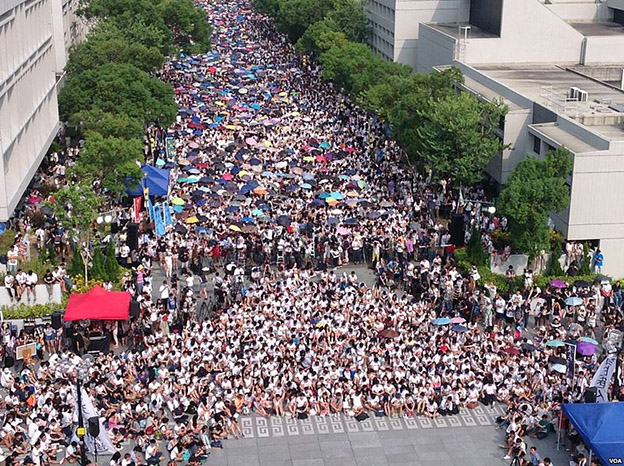Situation in Hong Kong now a ‘game of chicken’

Hong Kong college students strike on Sept. 23, 2014. A McMaster political scientist says the standoff has now become a game of chicken.
As tensions build between Hong Kong pro-democracy demonstrators and the Chinese government, McMaster political scientist Netina Tan is watching closely.
Hong Kong students are trying to convince the Chinese government to allow a free election for the chief executive of Hong Kong, while Beijing has resisted the idea, offering only its approved candidates to stand for public office.
The dispute is emblematic of a broader push for electoral reform in the former British colony, and has drawn global attention since it began Sept. 22.
The standoff in Hong Kong echoes the prelude to the Tiananmen Square tragedy of 1989, when Beijing clamped down, resulting in thousands of civilian deaths.
Still, there are differences between the two scenarios: the scale of the protest and accessibility to social media tools such as FireChat allow student protesters to gain international attention and mobilize quickly, without the use of Internet.
China now has three options to end the crisis, says Tan. One is to concede to students’ demands and have the chief executive step down. Another is to break up the protests by force, and a third option is to wait for protester fatigue to set in and for the movement to dissipate.
“This has turned into a game of chicken,” Tan says. “My take is that the government will stand its ground, offer token promises and wear the students down. The students will be pressured to disperse as more Hong Kongers want their lives to return to normalcy.”
Hong Kong Chief Executive CY Leung has thus far refused to resign. But as a sign of token concession, the Chinese government has sent a spokesperson to negotiate with the student leaders.
Among those who are sure to be paying close attention to the outcome is Taiwan, which will seriously rethink its reunification plans with China, if the negotiations fail and the protest turns violent, Tan says.
